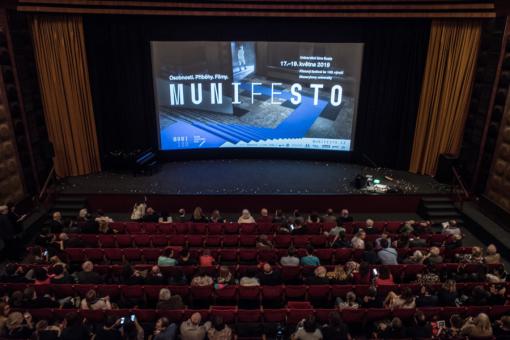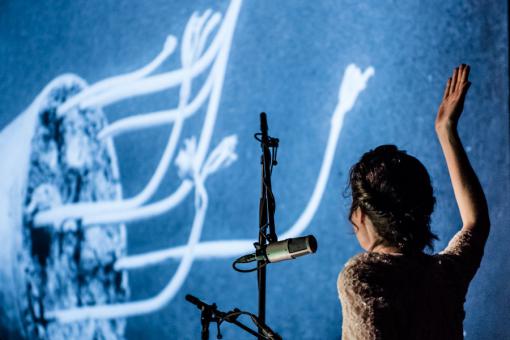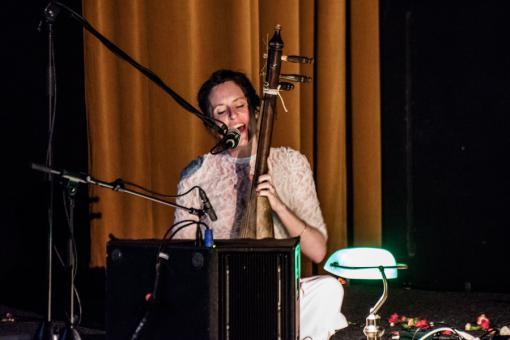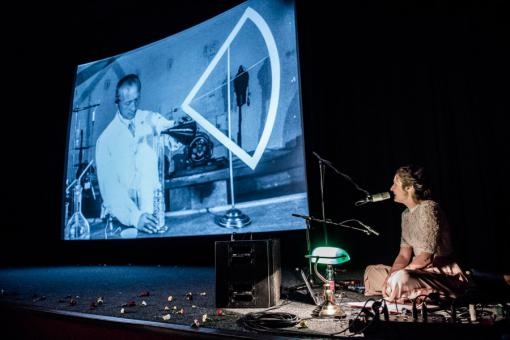On May 17-19, the film festival on the occasion of the 100th anniversary of the founding of Masaryk University came with some extraordinarily interesting screenings, reminiscent of important personalities from the university's history. The first of them had, in addition to the relationship with natural science, also the merit of studying folk songs. Professor Vladimír Úlehla (1888 – 1947) was commemorated by an impressive show by his great-granddaughter Julia Ulehla on Friday 17 May.
Vladimír Úlehla is renowned for his extraordinarily broad range of activities. He was an important biologist (more precisely, a plant physiologist with ecological focus), a publicist, a philosopher of natural sciences and also a distinct ethnographer. Among other things, he was the spiritual father of our biggest folklore festival in Strážnice.

Úlehla was a pioneer of the scientific film genre called time-lapse, which shows us in an accelerated time flow the growth and movements of plants. Úlehla used the skills gained in developing this distinctive film technique in his spectacular film project Mizející svět [The Disappearing World], in which he tried to capture the disappearing traditional cultures of the distinctive Horňácko region between 1931 and 1932. Unfortunately, the resulting film ended up in a catastrophic loss and burdened its creator with lifetime debts. Despite his commercial failure, Úlehla left us a unique – it can be said that in our conditions absolutely singular – testimony of the world of Moravian traditions, combined with impressive film shots.
Before the performance of Úlehla's great-granddaughter Julia, the relatively numerous audience was acquainted with Vladimír Úlehla's personality by university representatives of ethnology and plant physiology disciplines. The humanising dimension of this introductory part was given by recollections of Petr Pavlinec, a musician from Horňácko, in whose ancestral house in Velká nad Veličkou the film The Disappearing World was shot, and by a short speech of Úlehla's grandson Martin Úlehla, who left for the USA in 1968 and got married there. His daughter Julia, a talented singer and actress, did not know for a long time anything detailed about her ancestors. Only a few years ago, she came across a reprint of the most famous Úlehla's book Živá píseň [A Living Song], which is his best known ethnographic work. Without even knowing the language, she started singing the songs, previously collected by Úlehla, from numerous scores contained in the book. The songs strongly resonated in her and revived the desire to explore the ancestral memories.

With her father's help, Julia began to translate individual parts of this voluminous book, and with astonishment she began to discover her great-grandfather's literary and scientific talent and the inspirational message he left behind with his work. What is also remarkable is the fact that this fictitious intergenerational encounter came at a time when Vladimír Úlehla started to be more spoken about in his home country. Under the previous regime, this consistent, free-thinking democrat was a persona non grata: his works were not published and, with a few exceptions, his name did not appear in the academic sphere.
Julia Ulehla began to research the legacy of her great-grandfather both in the academic level (she included it as a topic in her doctoral thesis) and the artistic level. With her husband, guitarist Aram Bajakian, she created a musical project named Dálava [Far Distance], in which she interprets songs from Úlehla's book in a distinctive way. The duo appeared in concert some time ago in Brno and they played with a larger band at the Folk Holidays in Náměšť nad Oslavou.

For the opening evening of the Munifesto festival, Julia used a sequence of film excerpts from Úlehla's time-lapse films about plants and from the film The Disappearing World. She accompanied them impressively by reciting and singing selected songs with minimalist accompaniment – pre-recorded or played by herself. The whole performance had a peculiar, magical atmosphere, and the singer apparently reacted to what was happening on the screen and improvised her vocal expression within a broadly conceived prepared structure.
It was a very successful evening, in which the past shook hands with the present in a unique manner, paying well-deserved homage to Úlehla's personality.
































No comment added yet..